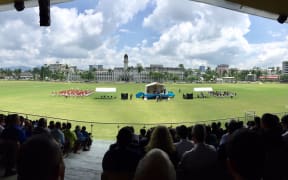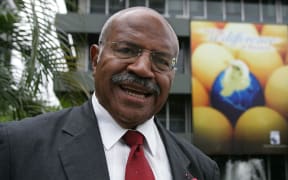A former Fijian coup leader and prime minister Sitiveni Rabuka is struggling for a niche in Fiji's new political landscape according to a scholar of Fiji politics.
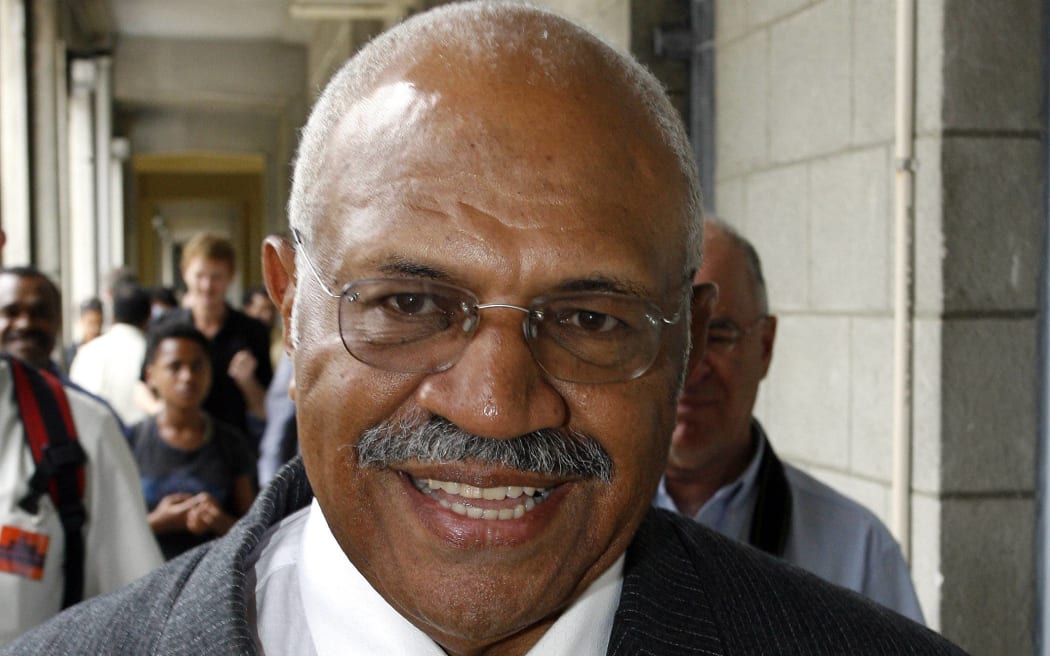
Former Fiji prime minister and two-time coup leader Sitiveni Rabuka. Photo: AFP PHOTO / Torsten BLACKWOOD
Mr Rabuka is the leader of the main opposition party Sodelpa and scored 11 percent in a recent poll asking Fijians who was their preferred prime minister.
The head of the Macmillan Brown Centre for Pacific Studies Steven Ratuva said the party had been in disarray since Mr Rabuka took on the leadership last year from Ro Teimumu Kepa who remains the leader in parliament until the next election.
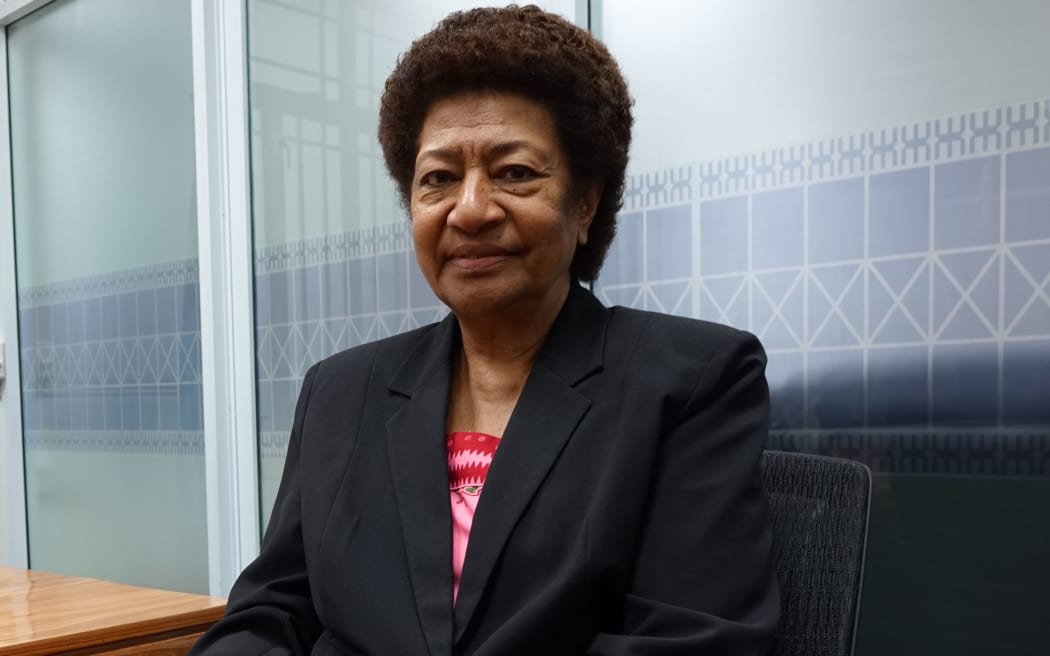
Fiji's Opposition leader Ro Teimumu Kepa. Photo: RNZI / Sally Round
"He hasn't been able to mobilise the kind of support that one would have expected, given his high profile, to stamp his authority within the party.
"Given time it might go up above 11 percent but I think one of the challenges for Sodelpa is being able to sort out internal differences within the party," said Professor Ratuva.
"Rabuka has been out of politics for a long time and is struggling to get his status back. He's been away from politics for 19 years and is trying his best to find a niche in the new political dynamics in Fiji."
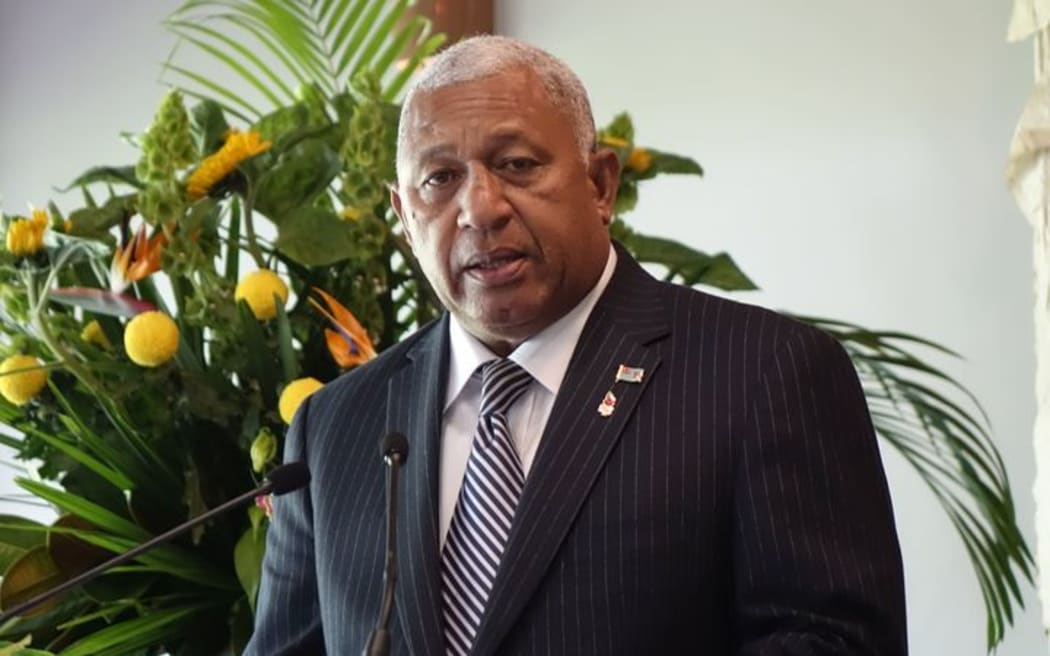
The Fiji Prime Minister Frank Bainimarama at Government House in Auckland. Photo: RNZ/ALEX PERROTTET
The Prime Minister Frank Bainimarama holds a commanding lead in the preferred prime minister stakes according to the poll by Tebbutt Research of 982 people held over three days earlier this month.
He scored 44 percent as preferred prime minister and 78 percent said he was doing a very good or good job, down slightly from 82 percent seven months ago.
"It looks like Bainimarama is far ahead in terms of the election and perhaps one of the reasons as well why they want to have the election early, maybe as early as April instead of September," said Professor Ratuva.
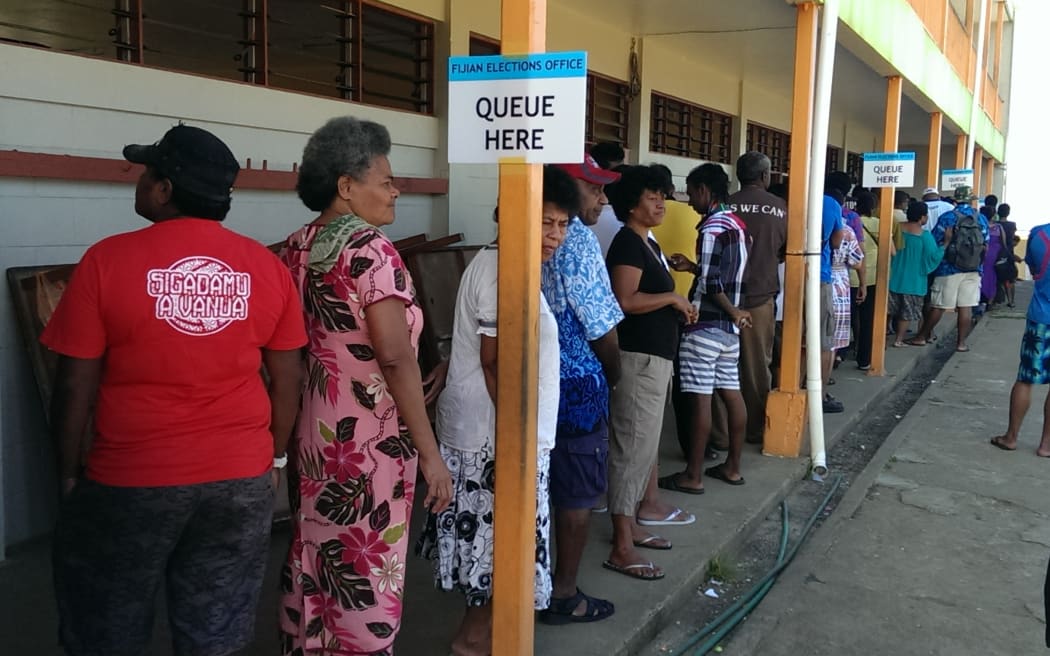
Voters queue at John Wesley College in Fiji Photo: RNZ / Philippa Tolley
Nevertheless 36 percent of respondents said they weren't sure who they would support if an election was held the next day.
"That is a very significant number in relation to people changing their mind when the election comes," he said.
He said Fiji's opposition parties were likely to campaign together, if they could overcome their differences, to fight Mr Bainimarama's FijiFirst party in the next election.
He said Fiji might see the parties making compromises in terms of supporting certain candidates together.
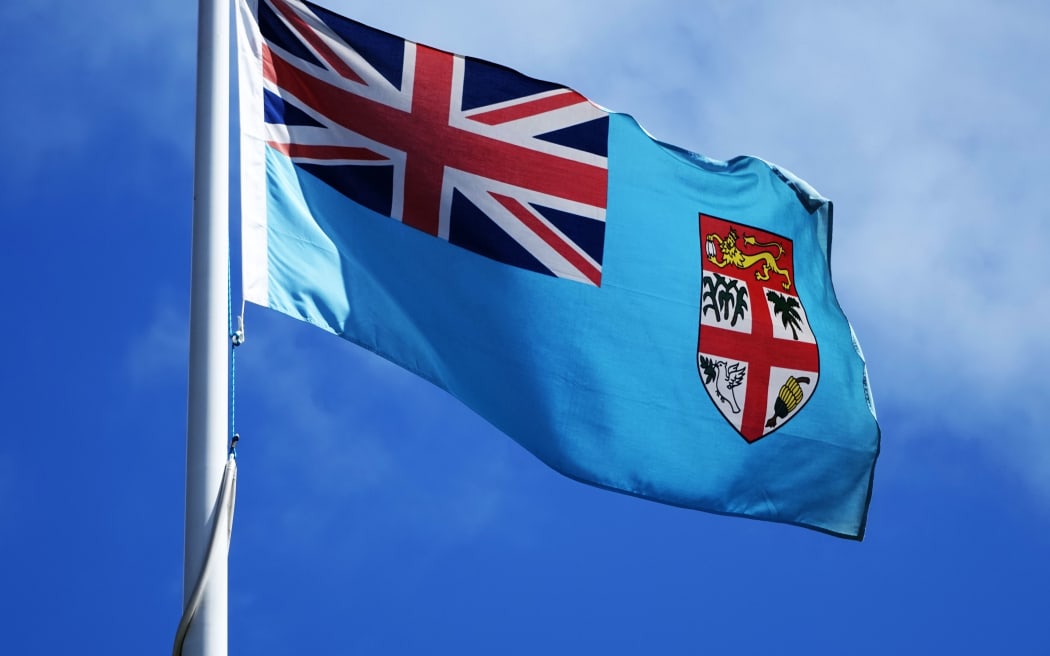
Photo: RNZI/ Sally Round

